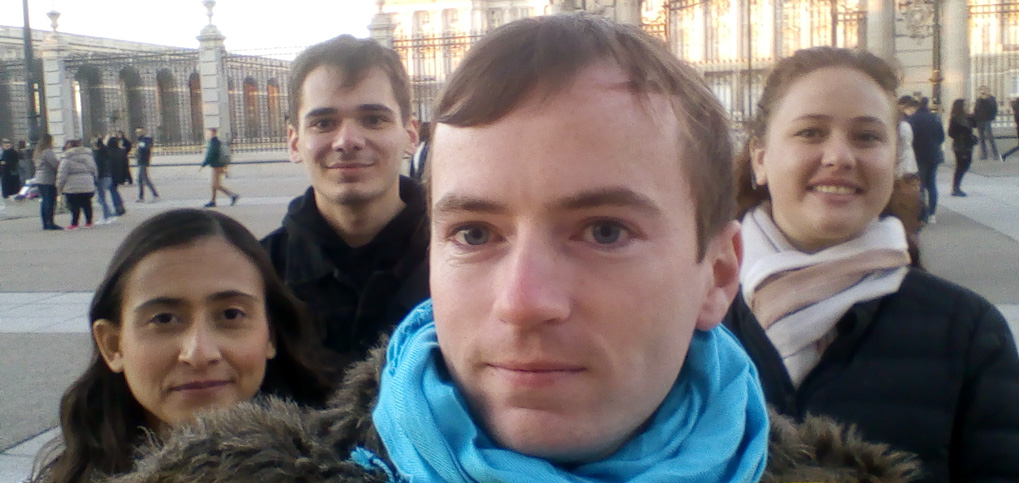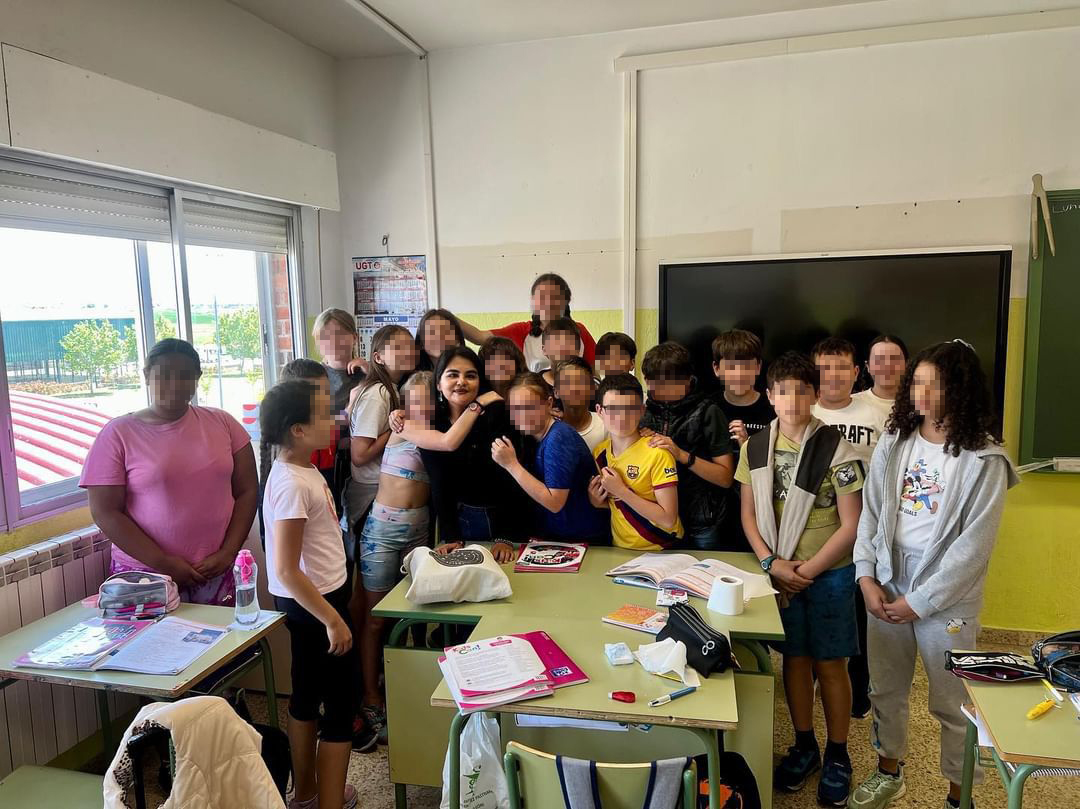By Andrew H., Auxiliar de Conversación 2019/2020-2020/2021 in Murcia and 2021/2022 in Madrid
Moving abroad to a new place in Spain is always a fascinating experience. I have lived here for over two years, so I will point five things that stand out to me in how different a life in Madrid is and what that entails from personal experience.
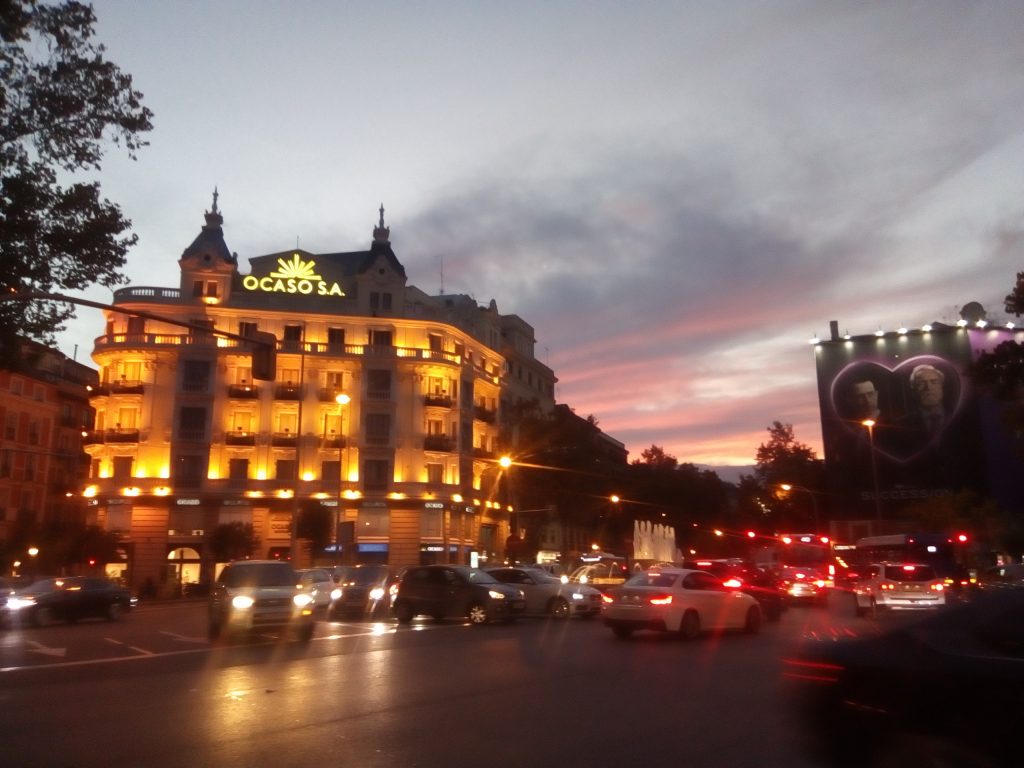
Warmth
One of the key things you won’t truly know from Spain unless you experience it is the warmth of people. This is something I cherish. I am still close friends with many of my teacher co-workers from previous schools I have taught in and commonly stay in touch with them. We discuss how life is going and how things have changed or stayed the same in the region since I left. My Spanish teaching co-workers are easy to stay friends with as they are both native to the country yet can always speak in English with me.
One thing that has changed with the virus is the new lack of Spanish greetings; no kiss on the cheeks due to the social distancing, masks, and other COVID-19 measures. Since I was fortunate enough to teach here before the virus hit, I was able to appreciate the social difference. On the other hand, one of the issues with the warmth of strangers is that in public places, whether as simple as a café, you will sit beside people who will make out with each other for a solid twenty minutes, despite how desperate and attention-seeking that comes across to everyone else in the building in a public setting. Often large groups of pedestrians on busy sidewalks will be blocked by things such as this.
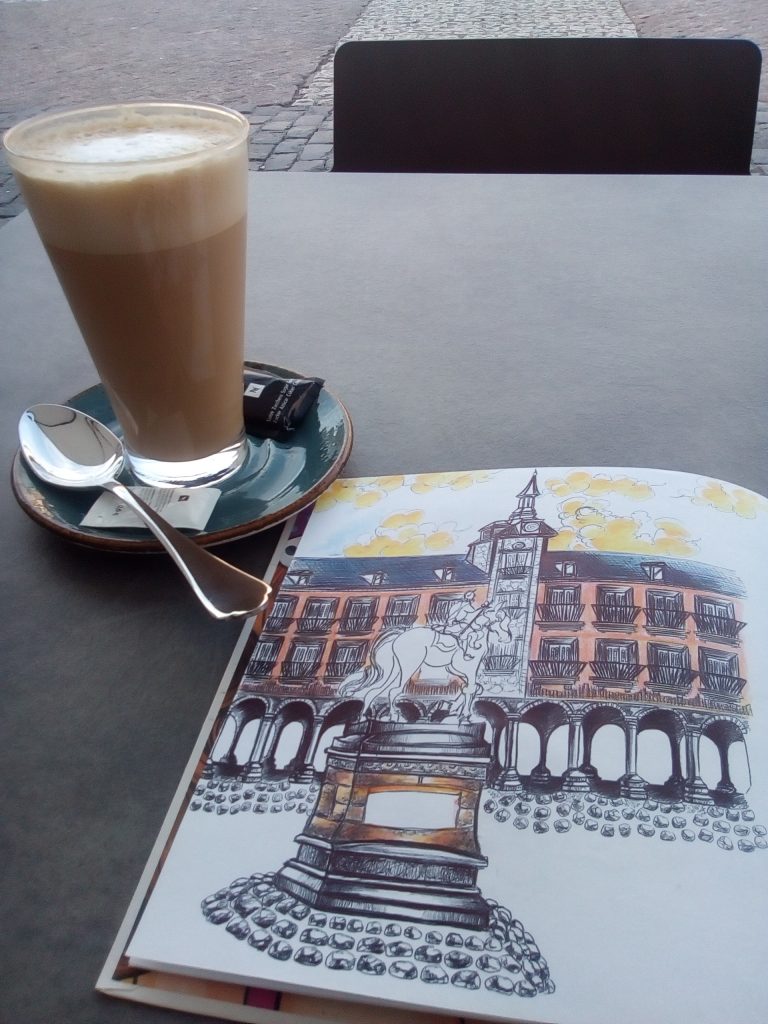
Moving abroad: food, tasting is believing
I will admit right now, I am a fussy eater. I always had been, especially in my home country of Ireland. A few years ago, a Spanish friend told me that when football fans leave the stadium after the match they will go to eat traditional Spanish cuisine at the food stalls and I will love the tapas they have on offer there. I, of course, didn’t believe him as throughout my life In Ireland I found the meats and vegetables in Ireland mostly lacking in appealing flavours or quality.
However, the foods on offer in Spain are amazing. I adore the fruits, meats and vegetables here, amongst the most surprising being the leg of Jamón. Commonly in Spain, you will see a pig’s leg on display in restaurants but despite its peculiar form, it is stunningly delicious. In summer, my friend Miguel, would carefully cut off slices of thin strips and the taste, flavour of the meat are to die for. In Ireland, if someone offered me a pig’s leg, I would refuse it on appearance without a second thought but in Spain not so. I had rarely eaten tomatoes in Ireland as I hated the flavour. In Spain, I almost always eat food that contains tomatoes as the flavour here is vastly different.

Milk in Spain
Moving on to dairy, I’ve always loved milk but my fellow auxiliars were very surprised when I told them that the milk in Spain tastes dramatically different from that of Ireland. Upon living in Totana, the hottest region of Murcia for a few weeks in summer, I was told of how most dairy often comes solely from the north of Spain in the Galician region -due to the prevalence of healthy green grass-.
Living in Murcia I was surrounded by desert, so it became clear that cows and green fields weren’t going to be very plentiful here. I love the heat and eternal yearly sunshine of Spain, but a downside is that even though I prefer the taste of Spanish milk, Iberian diary is simply always going to be harder to produce due to the geography and natural climate of this country. The foods here are something you cannot appreciate unless you taste it and it is a much-overlooked treasure of Spain as the culinary arts of neighbouring France and Italy get far more praise by comparison I feel.
Vital Non-Language Talents Moving Abroad
Something I wouldn’t have truly believed before I moved abroad was how useful and easy it would be to implement my talent of drawing into the classroom. In my first year, I taught primarily Biology and was pleasantly surprised by how much potential my drawings had to aid in teaching the sciences. The circulatory system, the digestive system, the cell, the skeleton, and much more were favourites of mine to illustrate and aid/ mesmerize the students in class to enhance their knowledge.
Whenever I would start drawing in class, the students would all suddenly fall silent and wait patiently to see what I would finish drawing. This encourages others to be better behaved or work harder in future classes as they know they will be rewarded for their diligence.
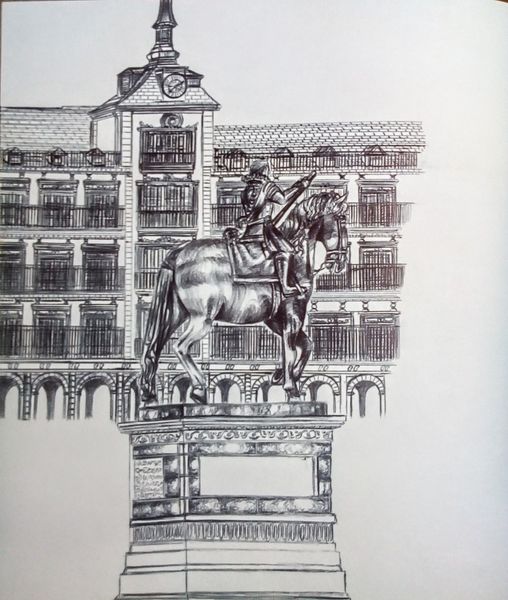
Schools Are Unique
Spanish schools bear so few similarities to Irish ones in my home country. Students all wear their normal clothes, no uniforms or ties are required, but what truly sets them apart is the proficiency of their second language. This is my second year of high school teaching and the third Spanish high school I have taught in overall. So many students not only tackle very challenging subjects fluently in English but are also capable of having casual conversations with me in the language. I am always reminded of this, teaching Astronomy to my students when we are focusing on the solar system and black holes. Opposite to Ireland, the sciences are taught solely in the foreign language. They were tackling the complexities of the solar system and the deeper nature of black holes, something we in Ireland would never do in our second language of German or French.

Certain classes I teach involve debates and again these are done only in English. The necessity for the students to embrace multiple differing subjects in English from a young age prepares them so well for speaking the language fluently by the end school. I find this unique in many ways. Having taught in Spain for over two years now it is a unique experience when I can understand the conversations of Spanish students in their own language and translate it back to them in English.
Moving Abroad: Madrid City
The city of Madrid is such a surreal experience, one you will not understand unless you live there. It’s a hustling, bustling metropolis filled to the brim with stores, theatres, and opportunities. ConversaSpain has been so helpful for me as Madrid can be overwhelming but the key reason I was able to find and make friends starting in Madrid, navigating through all of the chaos was through the auxiliar Facebook group. This allowed me to find people through organised meetups in locations across the citadel, from Parc Retiro to Parc del Oeste and I am very grateful for this.
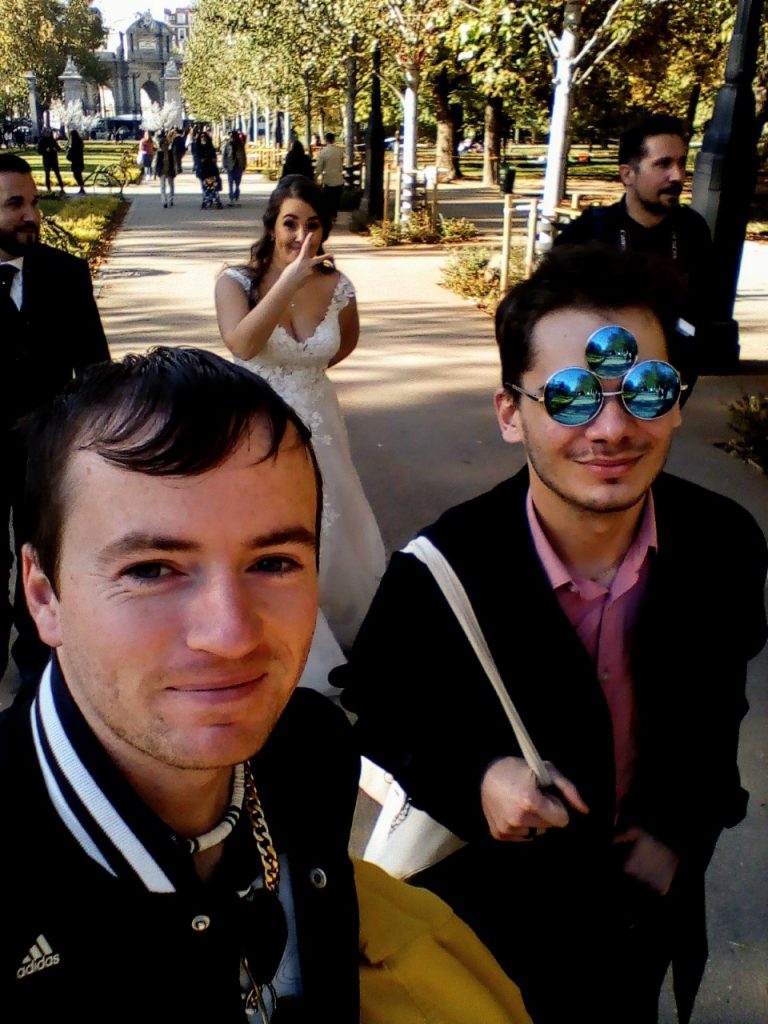
In a busy city such as this, you need friends to connect you to your surroundings and since they are fellow auxiliars they have similar interests, being in the same place in life. One thing I noticed immediately upon arriving here is just how many people speak English walking the streets. It is so different from the years I have spent living in the south and in Valencia where all you will encounter for months are the various native Spanish dialects. Madrid differs so greatly as it is a worldwide tourist capital, meaning that from direct experience I feel it is less Spanish but also more accessible if you’re new to Spain and more accommodating if you are trying to adjust to a new life abroad.


